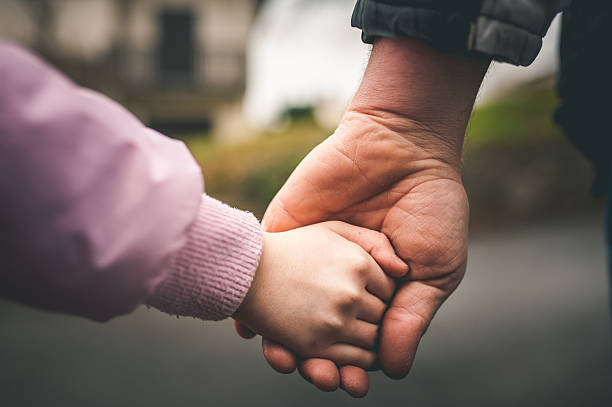The Impact of Childhood Trauma & Early Attachment on Adult Relationships

By: Nadia Albritton, MA
What’s Your Attachment Style?

I always chuckle when I think back to a first date I went on and was asked, “what is your ‘attachment style”?’ I would understand ‘love language’ but ‘attachment style’? After deciding that we would not work out, my date sent me a YouTube link explaining attachment theory. Mr. Attachment Style is on to something here. Your attachment type is an indicator of your perception. It is not seductive as learning your love language; however, it is significant in how one interprets their environment. And it all begins in early childhood.
The Importance of Secure Early Attachment
Most will agree that children need the love and guidance of adults to learn how to navigate their world in a stress-free manner. A low-stress environment breeds vital skills for children, including learning how to self-regulate, build independence, and cultivate effective relationships. Attachment, in real-time, is consistent feedback for little ones to explore and learn. Children depend on the safety and well-being of their home base to learn how to ride the rapids of life and eventually do so independently. As far as attachment theory goes, these early experiences create an intrinsic and internal blueprint on relational functionality. It may be presumptuous, but attachment fuels growth.
The Impact of Insecure Attachment on Adult Relationships & Mental Health
What happens if childhood is 180 degrees of a hallmark card? What if there is someone whose childhood is marked by instances of trauma such as domestic violence, substance use, untreated mental illness, and so on? Data tells us that stress can be experienced from infancy which then can lead to exaggerated stress response. Trauma (particularly abuse) impairs the inner biology, thus contributing to behavioral difficulties, anxiety, depression, and post-traumatic stress disorder (PTSD). Furthermore, evidence supports a relationship between insecure attachment and disease, symptom reporting, and more frequent health risk behaviors.
Disorganized Attachment & Hypervigilance – Are You an Empath or Experiencing Fight-or-Flight?
We hear about individuals that can walk through life and eerily “feel the energy” of another. Psychic? Maybe. I entertain another theory, heightened attunement. The notion of attunement begins at birth. As a baby receives signals introspectively, they relay this message to the parent. Typically, a caregiver answers a baby’s message through feeding, diaper change, cuddling, etc. These constant (and sometimes sleepless) interactions are for a reason. This is the beginning of social communication. We learn to honor and communicate our needs. We also learn how to respond by mirroring cues given by our caregivers. Generally, these children are set up to thrive socially.
A child receiving mixed signals from an unreliable caregiver cannot help but come to a disorganized conclusion about how to function in their environment successfully. A child may have their needs but are apprehensive as to how to address these needs. Therefore, they are hypervigilant to the adults in their environment. In essence, these individuals pick up on the idiosyncrasies of others. However, it stems from fear and ambivalence. These children are trying to resolve how to satisfy parental closeness, but a lack of trust prevents them from establishing a close connection. As a result, a suspicious and untrusting temperament prompts aggression, avoidance, and insecurity. Eventual adult criminality is not far-fetched.
Addressing Attachment Trauma in Adult Relationships – There is Hope
Early interactions are a critical foundation for how we interact with those around us. However, it can still be addressed if you or a loved one have experienced (or continue to experience) disrupted attachment. There are therapeutic modalities that aim to address attachment issues. For instance, Attachment-Based Family Therapy (ABFT) is an intervention that helps parents repair their relationship with their children. This approach has been empirically supported in the adolescent population struggling with suicidal ideation and depression. There are also therapists that practice Attachment Theory. These sessions are spent exploring early childhood interactions and how they can redirect to current relationships. It is bonafide inner child work. Confronting cognition is the only way. And yet, rewarding. Relationships are the crux of life, whether they are romantic, familial, platonic, or spiritual. It is worth having healthy dynamics.
—
Intent Clinical (Intent Clinical) offers a breadth of behavioral health services to address the needs of individuals and families living with addictions, eating disorders, mood and personality disorders, autism spectrum disorders, and other behavioral health conditions. If you or a loved one is suffering from a mental health disorder or are in need of support,contact us today. Our compassionate professionals are here to help find the resources to support you and your family.

